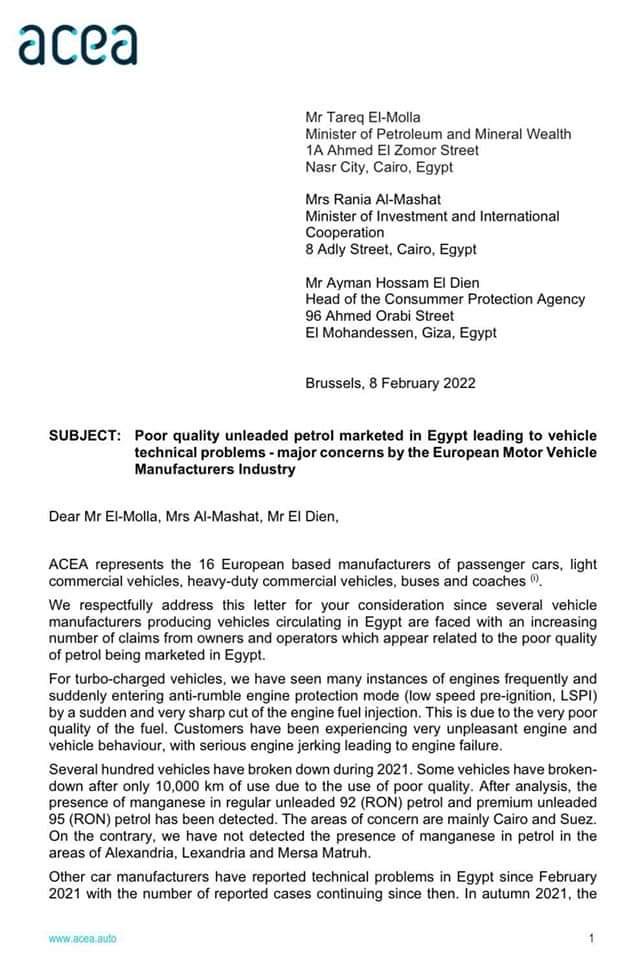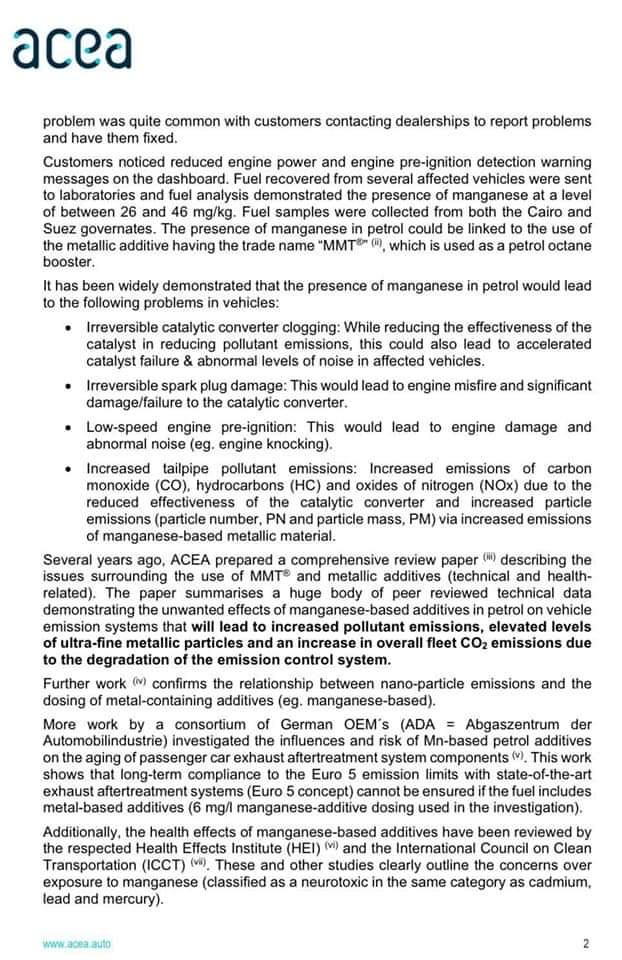CAIRO - 7 March 2022: European Automobile Manufacturers' Association (ACEA) affirmed on Monday to Egypt Today (ET) sending to the Egyptian government the circulated letter regarding concerns about the poor quality of petrol marketed in Egypt which led to vehicle technical problems.
A circulated letter dated to Feb. 8 addressed Egyptian officials, stating that several vehicle manufacturers producing vehicles circulating in Egypt are faced with an increasing number of claims from owners and operators which appear related to the poor quality of petrol marketed in Egypt.
“For turbo-charged vehicles, we have seen many instances of engines frequently and suddenly entering anti-rumble engine protection mode by a sudden and very sharp cut of the engine fuel injection. This is due to the very poor quality of the fuel. Customers have been experiencing very unpleasant engine and vehicle behavior, with serious engine jerking leading to engine failure,” the letter added.
According to ACEA, Several hundred vehicles have broken down during 2021. Some vehicles have broken-down after only 10,000 km of use due to the use of poor quality. After analysis, the presence of manganese unregular unleaded 92 (RON) petrol and premium unleaded 95 (RON) petrol has been detected. The areas of concern are mainly Cairo and Suez.
“On the contrary, we have not detected the presence of manganese in petrol in the areas of Alexandria, and Marsa Matrouh,” ACEA added to ET via email.
Related to the response of the government, “We don’t have any other comments at this stage,” ACEA stated.
For his part, spokesman for the Egyptian Ministry of Petroleum, Hamdy Abdel Aziz, denied the presence of manganese in Egyptian fuel and any other metals that might harm the car's engine, pointing out that Egyptian fuel conforms to standard specifications.
“Egyptian fuel is a local product, and it is produced from Egyptian refineries, and manganese, if it is placed, will harm the refining equipment and speak malfunctions,” Abdelaziz added, in a TV interview, Saturday, stressing that the warehouses in which the gasoline is stored, samples are analyzed, as well as in the underground tanks of petrol stations.
"We pump 30 million liters per day into all gas stations, noting that this problem is said to have appeared in Cairo and Suez,” he noted, wondering: "Why weren't the rest of the stations affected in the rest of the cities and governorates, especially since the product is the same in all stations?"
ACEA represents the 16 European based manufacturers of passenger cars, light commercial vehicles, heavy-duty commercial vehicles, buses, and coaches.
The European Automobile Manufacturers’ Association was founded in 1991 under the French name l’Association des Constructeurs Européens d’Automobiles, which explains the widely used and recognised acronym still in use today: ACEA.
Three decades ago, its founding members were: BMW, DAF, Daimler-Benz, FIAT, Ford, General Motors Europe, MAN, Porsche, Renault, Rolls Royce, Rover, Saab-Scania, Volkswagen, Volvo Car and AB Volvo.



Comments
Leave a Comment